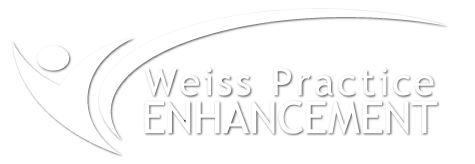Published in Dental Economics, June 2024
There is one topic that both dentists and employees respond to like an unexploded bomb has been catapulted into the middle of the reception area. Although employee compensation should be just another system in the dental practice, this one topic generates so much angst, stress and dread, it’s as if it was nuclear device.
Perhaps this is because many of us have “relationship issues” with money. We conflate money with self-worth, value and success, generating both a financial and emotional reaction to compensation. And to make this topic even more loaded, there is the perception that the dentist and the team are on opposite sides: employees want more money and dentists want to save money.
This issue is not unique to dentistry. In their 2023 survey, Franklin Templeton found that employee expectations about compensation have exploded in all industries. They write, “The workplaces of today face insatiable employees that continue to ask for more.”
This particular quote irks me. Equating employees who want higher salaries to hungry piranhas generates unnecessary resentment. We are all living through a period of decreased buying power. Simply to keep up, employees do need higher salaries.
But here is another pivotal statistic from that survey. While there was a 79% increase in employee expectations around compensation, there was also a 77% increase in expectations about recognition and acknowledgement. That should make every dentist sit up and take notice because the crucial insight is this:
Compensation and recognition are inextricably linked.
Over the last 25 years I’ve observed that the least happy employees are also the ones demanding higher salaries. It’s as if they say to themselves, “Well if I’m not getting fulfilled emotionally; then I damn well want to be paid more.” Therefore, one way to keep payroll expenses affordable, is to ensure you have a practice culture where employees feel valued and recognized as individuals.
Defining a Compensation System
The first step in untangling this web of conflicting emotions and goals and is to treat employee compensation as objectively as any other system in the practice and ensure that personal recognition is baked into the process.
Let’s define a system as a predictable, objective and fair way of organizing tasks and behaviors.
In my Feb 2024 DE article, “Can You Afford Your New Employee?” I shared that if you dole out raises only when employees approach you, then you might have a method; but you do not have a system. A great compensation system should be underpinned by this philosophy:
Compensation includes all the ways an employee is rewarded and recognized in the practice. A compensation system must feel fair to the employees, be affordable for the practice and must also incorporate employees’ social and emotional well-being.
Components of the System
In the Feb, 2024 article I described the philosophical tenets of fair compensation. A compensation system includes these components:
- Compensation and raises should be based on an employee’s growth and contribution during the year, not their longevity. Although employees may get a small cost-of-living increase, raises are only given if the employee’s improved performance merits an increased investment from the practice.
- Everyone will have a performance and salary conversation with the dentist at the same time of year. This avoids the mutual stress of remembering hiring dates.
- These conversations are scheduled in January or February, after the practice identifies the previous year’s collections numbers. That’s because to ensure the practice can afford raises, there must be an increase in collections compared to the previous year.
- Assuming there is an increase, the dentist creates a salary pool from a percentage of that increase. The dentist also chooses the maximum raise that can be given to each employee.
- Employee raises are based on how well the employee met expectations in 3 areas:
- How well they fulfilled their own job tasks
- How they contributed as a team player
- How they supported the practice’s business goals
- Employees also have an active role in evaluating themselves and determining their raises. During the performance conversations the employee is expected to self-evaluate and partner with the dentist to co-create their new performance goals. It’s these goals that will be used to determine the amount of next year’s raise.
- Throughout the year, the dentist provides employees with effective feedback about their strengths and challenges so that there are minimal surprises during these conversations. Employees shouldn’t leave these conversations needing a therapist or a lawyer.
Every system has associated paperwork. You’ll need:
- Employee self-evaluation worksheets
- Dentist evaluation of employee worksheets
- Contract for Performance (goal-setting worksheet)
- Compensation Package Overview (Compares the employee’s current salary and benefits to their new compensation package. This helps employees appreciate the true value of their compensation.)
Frequently Asked Questions
Over the years I’ve been asked a number of “what-if” questions.
- How do I compensate an excellent employee who is already highly compensated?
You can give that employee a one-time performance acknowledgment. Employees do value cold, hard cash for all the reasons I listed earlier. A one-time acknowledgement check won’t lock you into a new base salary.
Second, remember that employees want to be recognized and feel appreciated for who they are. Be an anthropologist and find something this person genuinely values and create a personalized gift. This could be anything from a gym membership to certificates for manicures, haircuts, house-cleaning or babysitting services. You could give a new cell phone, Kindle or supplies for their hobby. Be sure to talk with your CPA about how to declare this!
2. What should I do if there wasn’t a collections increase or it was too small to create a salary pool?
Employees need to understand there is no magic money tree for raises if the practice isn’t profitable. The key is to keep them focusing on the future. Perhaps you can create a goal-based game where the team can win cash awards for achieving milestones, like asking for a specific number of referrals.
Most importantly, the team needs to engage in a planning session where you all brainstorm ways to increase production and collection for the coming year.
3. What if an employee comes to me mid-year and wants a raise?
This is tough because the employee may be threatening to leave you to get a higher salary elsewhere. The short answer is that if you give this person a raise, then anticipate that word will get out and it will be open season for everyone to ask you. This undercuts the whole purpose of having a system.
So, the short answer is no, but the nuanced answer is to have an honest conversation with this employee. Is there anything else that bothers them about working in your practice? Do they need health benefits now because they’re getting divorced? Are they feeling over-worked or overwhelmed? Aside from a raise, is there anything you could do to keep them in the practice? Finally, remind them that they may get that raise if they hold on till the performance conversations.
One question emerges repeatedly. How can a dentist determine if their current payroll costs are healthy and how can they calculate the impact of raises or new employees? This question inspired me to develop the Dental Wage Planner. This tool helps dentists calculate their current costs including employee benefits and payroll taxes and compares it to their production and collection. The tool also enables dentists to calculate the costs of forecasted raises or new employees. I’m happy to provide the Dental Wage Planner to any Dental Economics reader who requests it.
To recap, if you want to prevent compensation from becoming an unexploded bomb in your practice, you need to implement a system. This means you need a protocol for raises, and a process that includes a timeline, job descriptions and goal-setting and evaluation worksheets. Finally, you’ll need feedback skills so that you can direct and support your team. This might sound overwhelming, but when done well, your compensation system becomes the backbone for employee growth instead of a landmine.




